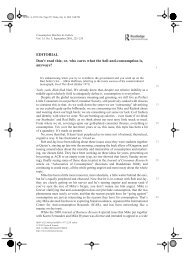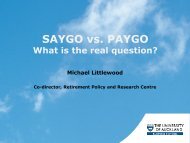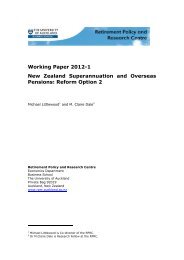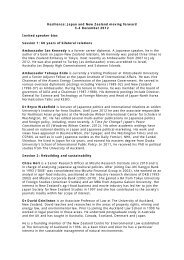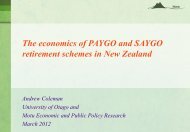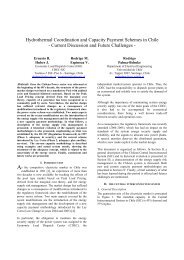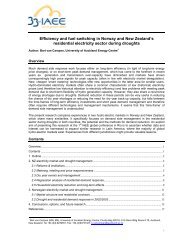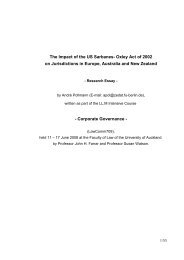TAX NONCOMPLIANCE AMONG SMALL and MEDIUM ...
TAX NONCOMPLIANCE AMONG SMALL and MEDIUM ...
TAX NONCOMPLIANCE AMONG SMALL and MEDIUM ...
You also want an ePaper? Increase the reach of your titles
YUMPU automatically turns print PDFs into web optimized ePapers that Google loves.
proved that foreign-controlled companies have more than double the proposed deficiency rate as<br />
domestic companies. In Malaysia, although Zainal Abidin et al. (2010) did not find any statistical<br />
evidence on the influence of foreign ownership, but they did suggest that foreign ownership may<br />
influence noncompliance behavior. This study believes that company with minimal foreign<br />
equity tend to commit tax fraud because they can easily h<strong>and</strong>le technical <strong>and</strong> complexity issues<br />
with the present of highly experienced <strong>and</strong> technically sound foreigners. Thus, by having a<br />
minimal of less than 19% of foreign equity in the form of ownership, it is believed that it can<br />
influence the decision of managers when they want to manipulate financial statement. Thus, this<br />
study hypothesizes that:<br />
H₄: There is a positive relationship between foreign ownership <strong>and</strong> corporate tax<br />
noncompliance.<br />
2.4.5 Company Size<br />
There is mixed evidence of the findings between the company size <strong>and</strong> tax noncompliance. Some<br />
prior studies (e.g., Hanlon et al., 2007; Nur-tegin, 2008; Rice, 1992) found a positive association<br />
between company size <strong>and</strong> tax noncompliance. In contrast, Juahir et al. (2010), Joulfaian (2000),<br />
Tedds (2010), <strong>and</strong> Zainal Abidin et al. (2010) found that company size is negatively associated<br />
with tax noncompliance. They found that larger firms are more compliant with tax laws due to<br />
better internal control, proper accounting system <strong>and</strong> higher tax knowledge as compared to<br />
smaller firms. Besides, larger firms need to comply with some rules <strong>and</strong> regulations, especially<br />
for those SMEs which have been listed on Bursa Malaysia. For example, in Malaysia, a listed<br />
public company needs to comply with the approved accounting st<strong>and</strong>ard, the Companies Act<br />
(1965), the Securities Commission guidelines, the Bursa Malaysia listing requirements <strong>and</strong> the<br />
Income Tax Act (1967).<br />
Furthermore, the implementation of SAS dem<strong>and</strong>s honesty <strong>and</strong> voluntary compliance among<br />
taxpayers. To comply with tax laws, rules <strong>and</strong> regulations, many corporations incur costs, which<br />
is an additional cost to their tax liability. Hafizah <strong>and</strong> Mustafa (2008) argued that this additional<br />
cost known as compliance cost posed a heavy burden <strong>and</strong> financial pressure for SMEs. In fact,<br />
they also found that small enterprises have a higher percentage of tax compliance costs as<br />
compared to large enterprises. The higher tax compliance costs are believed can influence the<br />
intention of SMEs to comply with tax laws, rules <strong>and</strong> regulations. Thus, this study believes that<br />
such difficulties facing by small firms would influence on the compliance behavior. Hence, the<br />
fifth hypothesis is developed as follows:<br />
H₅: There is a negative relationship between company size <strong>and</strong> corporate tax noncompliance.<br />
12



